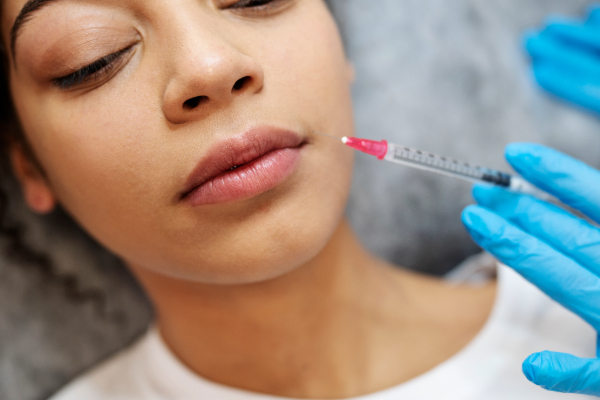
It’s easy to feel overwhelmed by the wide range of facial aesthetic treatments available today.
We’d like to bring a little more clarity by answering some of the most common questions our patients at the Family Dental Clinic ask us about dermal fillers.
1. What is the difference between Botox and filler?
Both treatments are done by injection. Botox is based on botulinum toxin and temporarily relaxes muscles, thus reducing wrinkles and lines. Dermal filler is based on hyaluronic acid (ingredient of collagen) and plumps up skin and smoothes out wrinkles.
2. What is dermal filler?
It is a non-surgical injectable gel that helps achieves a fresher, smoother and more plump appearance of skin and face. It offers an external boost for skin’s depleting hyaluronic acid. There are many types of filler and depending on the purpose of the treatment, they can be injected at different depths into and below the skin surface.
Good understanding of facial anatomy and advanced training is required for such procedures to be safe. Dermal fillers are used to improve the condition of skin, boost regeneration of collagen, restore lost volume, help fill in the wrinkles and lines and improve general condition of the skin.
3. Are all fillers the same?
There are many types of dermal fillers and various brands have their own products on the market. At FDC, we use excellent lines of products from Plural (a family-owned company from Luxembourg). This company offers a wide range of products for many types of treatments, including:
- Volumising and contouring filler.
- Biostimulating products that are lighter and boost collagen levels in the skin
- Very light mesioline products that address specific skin concerns like acne, dull or saggy skin or pigmentation.
- A range of injectables based on polynucleotides for improving hair and skin density.
- Their newest product Exoyouth is formulated with exosomes, peptides and growth factors from stem cells of plant origin. It boosts hydration, supports cell regeneration and combats signs of aging!
4. How will I know which filler is right for me?
Different facial filler types achieve different outcomes, such as:
- Improving hydration of your face, neck, hands and décolletage
- Soften lines around your mouth, chin and nose
- Remodel your cheeks, nose chin
- Give more definition and volume to your lips
- Restore lost facial volume
During your initial consultation our aesthetic practitioner will discuss your objectives and will offer a personalised treatment plan with the right products tailored to your needs.
5. What if I don’t want to plump up, but would like to look younger?
For patients who would like to restore and regenerate without the filler effect, the products from mesioline or non- cross linked hyaluronic acid in Plural Booster is ideal.
6. Is filler painful?
These products are injected using a syringe and a canula or needle. Local or/and topical anesthetic is administered and the discomfort and down time after is minimal.
7. How long will filler last?
This depends on the area treated and your lifestyle, i.e., smoking, high sugar diet, and individual metabolism, skin elasticity. All fillers containing hyaluronic acid break down and become absorbed into the skin after around 6-18 months.
8. How soon will I see results?
After having dermal fillers, you should be able to spot the difference immediately; your skin will look fresher, plumper and glowy.
9. What to expect after filler?
After dermal fillers treatment, patients may experience slight redness, swelling or tenderness around the area that has been treated. Feeling of numbness, like after dental injection is normal too. There may be slightly bruised or raised skin or even minor irritation in the area. Such side effects from facial filler tend to subside within a few days.
It is possible to speak, drink and eat straight after the procedure, but physical exercise should be avoided for 24 hours.
Read our guide on aftercare.
10. How much does facial filler cost?
We offer personalised treatment plans, with prices starting at £150 for the mesoline range.
If you’re unsure whether dermal fillers are right for you, the best way to find out is through a personalised consultation.
Looking for dermal filler treatment in Chichester? Click here or call 01243 771171 to schedule a consultation and chat through your requirements.
